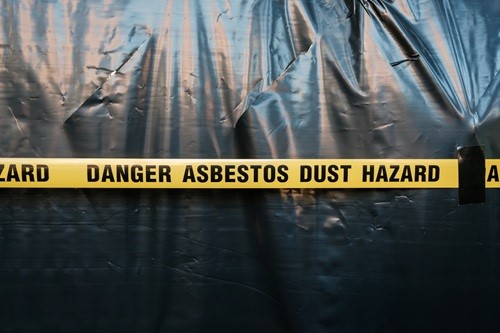A legal anomaly that makes it more difficult for sufferers of asbestos-related lung cancer to obtain compensation than people who have developed mesothelioma means large numbers of people are dying before receiving full compensation that could prove vital in the final months of their lives.
Opinion
It is time to end the lottery of asbestos compensation
Dying people who prove they have lung cancer caused by exposure to asbestos at work often go under-compensated because some of their former employers have disappeared and insurance records have been lost or cannot be traced.
Imagine a scenario in which two people have been negligently exposed to asbestos at work, in identical circumstances. Years after their exposure, they have both become ill and have identical, devastating, prognoses.
 Daniel Easton: "There is no justification for treating sufferers of asbestos-related lung cancer any differently from sufferers of mesothelioma."
Daniel Easton: "There is no justification for treating sufferers of asbestos-related lung cancer any differently from sufferers of mesothelioma."
They are both entitled to compensation from their former employers, who exposed them to asbestos at a time when the dangers were well-established and understood. The compensation is important, and the need for it is urgent. The money can fund private care and treatment or therapies which are not available on the NHS, and help to make victims comfortable for the final few months of their lives.
Family members often stop working to care for victims, who can have some peace of mind that compensation should prevent their loved ones from facing financial dire straits; to know the mortgage is settled, or at least that their spouse can put the heating on, is a significant comfort at the worst time.
But with workers often having worked for many different companies, tracking down the information needed to make a claim from all the employers responsible for the exposure can be a hopeless task in some cases. Insurance records may have been lost or destroyed in the years between the exposure to asbestos and diagnosis.
Obtain compensation swiftly
One of the victims of asbestos exposure has a diagnosis of mesothelioma. The law assists people with mesothelioma by allowing them to claim full compensation from just one responsible employer. They must still prove there was negligence and that asbestos caused the disease.
The insurance company of the one employer can then set to work on finding the others to recoup the costs, if it sees fit to do so. This helps victims because it places the burden of providing compensation squarely on the representatives of wrongdoers and not on the people whose lives have been shattered by the negligence of their employers. It enables victims to get compensation swiftly when it is needed, without delaying claims with arguments over what share a company has to pay.
 Photograph: iStock
Photograph: iStock
The other victim has a diagnosis of asbestos-related lung cancer. In both cases, the victim has to prove their cancer was caused by asbestos and they are so similar that medical experts can struggle to distinguish between the two diseases. It is not unusual for medical experts initially to diagnose asbestos-related lung cancer, only for them to confirm later that a case is mesothelioma, and vice versa.
Yet the victim with a diagnosis of asbestos-related lung cancer does not have the same protection under the law as the victim of mesothelioma. All former employers and records must be located if someone with a diagnosis of asbestos-related lung cancer is to receive the full compensation to which they are entitled. It means that suffering people, in pain and struggling to breathe, are penalised financially, sometimes very heavily. Sixty per cent of whom die within a year of diagnosis. The importance of full compensation, and the need for it to be provided to the victim quickly, cannot be overstated.
There is absolutely no justification for treating sufferers of asbestos-related lung cancer any differently from sufferers of mesothelioma. The symptoms can be the same and they are both as deadly for those people who contract them. Around 2,500 deaths a year are caused by each disease. The difference in the way the law treats people with these two almost identical diseases is conspicuous.
Lobbying parliamentarians for a legal amendment
The Association of Personal Injury Lawyers (APIL) is actively lobbying parliamentarians for change on this issue, alongside the Asbestos Victims Support Groups Forum (AVSGF). The aim is for the Government to introduce a UK-wide law to allow sufferers of asbestos-related lung cancer who cannot trace all their former employers to recover full compensation from any one responsible employer.
While this grossly unfair situation affects just a small number of people, to them and their families it means everything. It would take just a small and simple change to the law to help them, and the precedent for change already exists in section three of the Compensation Act 2006.
The Government in 2006 recognised the need to support mesothelioma sufferers who face being unable to trace their former employers’ insurers, noting that compensation needs to be provided quickly because of the short life expectancy after diagnosis. Parliament passed section three of the Compensation Act with unanimous support from MPs, which allows sufferers of work-related mesothelioma to receive full compensation, even if not all former employers can be traced. The same support is needed, and needed quickly, for sufferers of asbestos-related lung cancer.
Parliament only changed the law on mesothelioma claims in a direct response to a House of Lords judgment at the time which related to mesothelioma. Lung cancer claims were not considered and the law now needs to address that inconsistency.
The issue has been raised on the floor of the House of Commons and with ministers. APIL and the AVSGF will continue this critical work in haste.
For more information see:
apil.org.uk
linkedin.com/company/association-of-personal-injury-lawyers/
@APIL
OPINION

Is workplace health safe in 2026?
By Kevin Bampton, BOHS on 10 February 2026
UK Government efforts to boost the economy and employment levels through approaches such as deregulation pose a serious threat to the country’s workplace safety standards and the health of our workforce.

How stress and burnout will shape the workplace in 2026
By Charlotte Maxwell-Davies, Mental Health UK on 09 February 2026
Burnout is rapidly becoming one of the nation’s most significant workplace challenges. It is emerging as a defining issue for organisations and wider society, as the UK contends with a long-term sickness crisis driven by poor mental health. Stress can be motivating in short bursts, but when left unmanaged it contributes to work absences and lost productivity, as well as presenting a clear risk to the health of workers.

A new year, a new approach to risk?
By Mike Robinson FCA, British Safety Council on 02 February 2026
The rulebook is becoming obsolete faster than we can rewrite it. While bureaucracies labour to update yesterday’s regulations, the world of work transforms daily.



